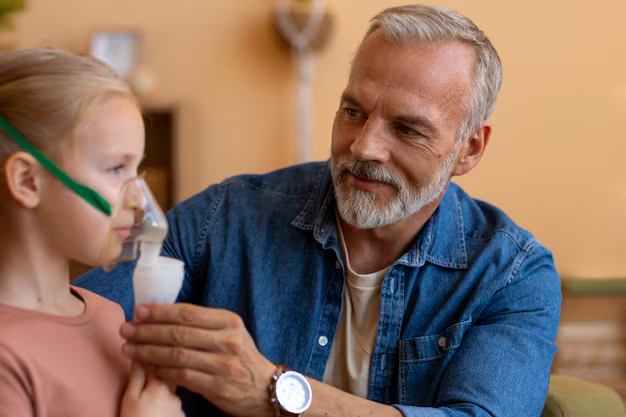Can Pneumonia Resolve Itself? What You Need to Know
At some point, most people have encountered the term pneumonia, either because they or someone they know has suffered from it. The question often arises: "Can pneumonia go away on its own?" This question isn't just casual curiosity—understanding the nature of pneumonia is crucial for managing health concerns effectively. In this article, we delve deeply into this question and explore related topics that provide a full understanding of pneumonia.
Understanding Pneumonia
What Is Pneumonia?
Pneumonia is an infection affecting the lungs, causing inflammation in the air sacs. These air sacs may fill with fluid or pus, leading to symptoms such as a cough with phlegm or pus, fever, chills, and difficulty breathing. Pneumonia can range from mild to severe, depending on various factors such as the type of germ causing the infection, a person’s age, and their overall health.
Causes of Pneumonia
Pneumonia can be caused by various pathogens, including bacteria, viruses, and fungi. Here are the common causes:
- Bacterial pneumonia, often caused by Streptococcus pneumoniae.
- Viral pneumonia, which might be caused by the influenza virus, respiratory syncytial virus (RSV), or coronaviruses.
- Fungal pneumonia, more common in people with weakened immune systems.
Symptoms to Watch Out For
Some of the most common symptoms include:
- Persistent cough
- Fever and chills
- Shortness of breath
- Chest pain when breathing or coughing
- Fatigue
- Nausea or vomiting
- Confusion, especially in older adults
Does Pneumonia Resolve Without Treatment?
Self-Resolution: Fact or Myth?
Mild cases, particularly those of viral origin, may resolve on their own as your immune system fights off the infection. It is imperative, however, to monitor symptoms and seek medical advice if they worsen or do not improve over time.
While some mild forms can resolve without medical intervention, it is dangerous to assume that pneumonia does not require treatment. Severe cases can lead to serious complications or even be life-threatening without appropriate care.
Factors Influencing Self-Resolution
Several elements can affect whether pneumonia might go away without treatment:
- Type of pathogen involved
- Strength of the individual's immune system
- Age of the person, with younger and older individuals generally more at risk
- Underlying health conditions, such as chronic lung diseases
When to Seek Medical Attention
Warning Signs That Require Prompt Care
Although not providing direct medical advice, here are indicators for when it's wise to seek medical attention:
- A consistent high fever
- Persistent cough that worsens
- Noticeable shortness of breath
- Experiencing confusion or sharp, stabbing chest pain
Possible Complications of Untreated Pneumonia
Leaving pneumonia untreated can result in severe complications such as:
- Bacteremia: Bacteria enter the bloodstream, potentially causing organ failure.
- Lung abscesses: Pus-filled cavities in the lungs.
- Pleural effusion: Fluid accumulation around the lungs.
- Acute respiratory distress syndrome (ARDS), requiring urgent care.
Risk Factors: Who Is Most Vulnerable?
Population Groups at Greater Risk
Pneumonia can affect anyone, but certain groups are more vulnerable:
- Individuals under age 2 or over age 65
- Those with underlying health issues, such as asthma or heart conditions
- Smoking, which damages the lungs
- People with weakened immune systems from HIV/AIDS, chemotherapy, or organ transplants
Enhancing Self-Care and Prevention
Self-Care Measures at Home
While professional medical advice is vital, some general practices might aid recovery:
- Rest: Ensuring adequate rest helps your body fight off the infection.
- Hydration: Drink plenty of fluids to keep the body hydrated and to loosen trapped mucus.
- Maintaining a healthy diet supports overall immune health.
Preventative Measures
Prevention can significantly reduce the risk of contracting pneumonia:
- Vaccination: Vaccines like the pneumococcal vaccine and flu shot can lower risk.
- Hygiene practices: Frequent handwashing greatly mitigates the spread of germs.
- Avoiding smoking: Keeps your lungs healthier and less vulnerable to infections.
Final Reflections
Understanding pneumonia's complexity offers insight into why some cases may resolve on their own while others demand medical intervention. It emphasizes the need for awareness about personal health and available preventive measures to mitigate risk effectively. Pneumonia's variability illustrates the broader theme: not every illness behaves predictably, highlighting the importance of tailored care and informed vigilance.
Quick Takeaways: Pneumonia Insights
- 🤔 Can It Resolve on Its Own? Yes, but primarily mild cases; serious ones need medical attention.
- ✅ Self-Care: Rest, hydrate, and maintain a nutritious diet.
- 🩺 Seek Help If: You experience high fever, worsened symptoms, or difficulty breathing.
- 🌐 Prevention: Vaccination, hand hygiene, and avoiding smoking are crucial.

Related Articles
- a Typical Pneumonia
- Can a Cold Turn Into Pneumonia
- Can a Sinus Infection Turn Into Pneumonia
- Can Amoxicillin Cure Pneumonia
- Can Amoxicillin Treat Pneumonia
- Can Baby Oil Cause Pneumonia
- Can Bronchitis Turn Into Pneumonia
- Can Covid Turn Into Pneumonia
- Can Doxycycline Treat Pneumonia
- Can Flu Turn Into Pneumonia
